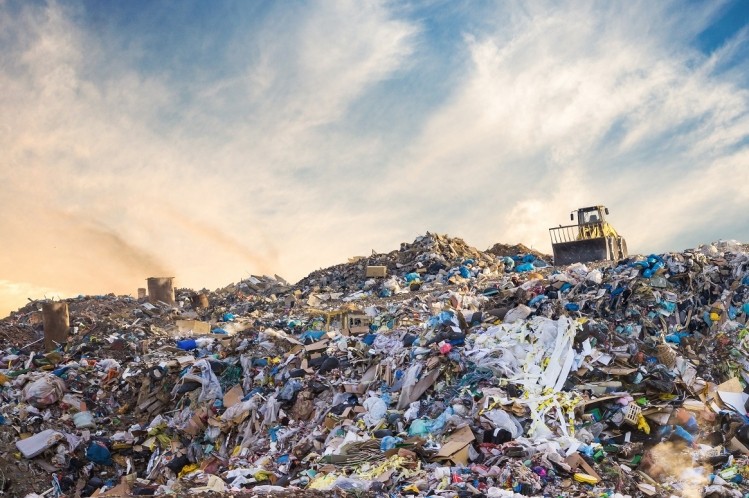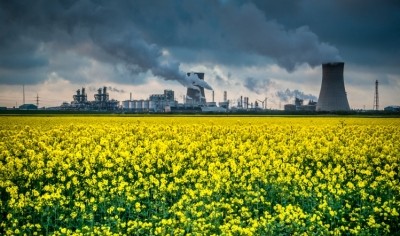How AI can cut food processing waste - Fraunhofer Institute

A study conducted by the Thünen Institute in 2019 revealed that about 30% of food waste occur in food production and processing.
The REIF project has 30 partners working on a long-term solution. The primary focus is designing an AI ecosystem, which includes participants at every step of the value chain. The project is funded by the German Federal Ministry for Economic Affairs and Energy (BMWi) to the tune of €10m.
Causes for avoidable waste range from overproduction to fluctuations in raw materials' quality to the food failing to fulfil the aesthetic requirements of retailers and consumers.
Meat, bakery and dairy products
Waste occurs with meat, bakery and dairy products mainly because they spoil quickly. “Two aspects are key to significantly reducing food losses in these sectors – minimising overproduction and avoiding waste,” explained Patrick Zimmerman, a scientist at Fraunhofer Casting, Composite and Processing Technology and a member of the research consortium.
He, Philipp Theumer and five other colleagues are looking at how a company's internal potentials, such as in plant and machinery or production planning and control, can be optimised to reduce waste using AI methods.
“We apply AI to the entire value chain, especially in production facilities," said Zimmerman. "To do that, we adapt and select the algorithms that are suitable for the respective application. We look at the predictability and controllability in all areas – from production on the farm to sale in the supermarket – to optimise their potential."
Overproduction and forecasting
Theumer added: "Overproduction and waste can be avoided by making targeted forecasts on food requirements, improving the predictability and controllability of the value creation processes and reducing quality-related food loss.”
However, the potentials are highly diverse. Zimmermann used a meat mixer as an example. “The temperature and duration of the mixing process influences the expiry date of meat products.
"If we use AI algorithms to minimise the amount of energy admitted to the mixing process, we can extend the expiry date, which in turn optimises the selling time in the supermarket and reduces food losses.”
Highest amount of waste at power-up
At a system level, the highest amount of food waste occurs at power-up. This is because the optimum parameters have to be identified first, and therefore waste is produced in the meantime.
“As an example, we are applying intelligent sensors and self-learning AI algorithms to perfect the foaming process during the production of cake bases at the first attempt,” Zimmerman said.
In the long term, the REIF project partners are looking to establish an IT ecosystem and set up a virtual marketplace. In the future, companies will be able to provide the AI-algorithms they implemented to all participants on this platform.
Data
Another aim is to network the data of all companies involved in the project to enhance the added value within the food industry's complex value network, said Zimmerman. “One company's expertise can be transferred to another organisation. The more data is made available, the better the AI model can be trained.”
The online marketplace is where the project partners can swap their data. Ultimately, production companies can control their manufacturing processes better by benefiting from sales forecasts. The data collected by supermarkets will be included in the forecasts.
"If we bring together a range of factors like customer behaviour, inventory levels and expiry dates, we can make dynamic price adjustments on specific products in supermarkets," Zimmerman said.
Daily price adjustment
“The continuous, daily price adjustment will avoid the drastic price slashing we are used to seeing shortly before the expiry date and prolong the selling time. Consequently, a product is more likely to be bought before it's passed for disposal and the overall profit also increases.”
The approach locked in maximum profit for the retailer while reducing waste and overproduction and the entire delivery chain benefited from the idea of sharing information, including external data, said Zimmerman. “If the weather report is good, supermarkets sell a lot of barbecue meat. Meat producers can adjust their slaughter volume accordingly and, vice versa, run-down production in poor weather.”
And the end customer would also benefit, he added. In poor weather, the price of barbecue meat could be reduced at an earlier time, saving it from sitting on the shelf. Prediction systems such as these could also be offered over the online platform.
The project partners are currently in the concept phase. The first practical tests are set to start soon.
















